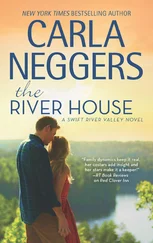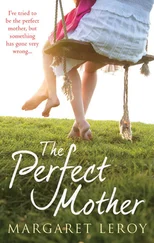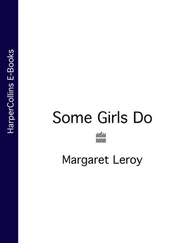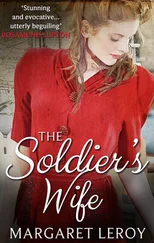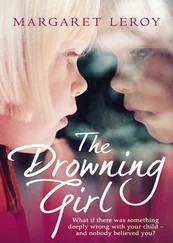Molly turns to me, unsure suddenly. She’s never had Amber’s certainty.
‘Is it OK? D’you like it, Mum?’
I realise I’ve just been standing here, staring.
‘Molly. I love it. It’s wonderful.’ Instinctively, I put my arm around her, then realise she will hate me doing this in public. But she tolerates it for a second or two before she slides away.
‘Mr Bates asked if my grandparents were coming,’ she says. ‘He kind of blushed when I said that Grandad was dead. It was, like, really embarrassing. Mum, make sure Dad sees it.’ She moves off with Amber towards a gang of her friends.
I go to find Greg.
‘You have to come and see Molly’s work,’ I tell him.
He says goodbye to the earnest philologist. I take him to see the canvas.
He has an appraising look, one eyebrow raised, the look he has when he’s reading a student’s essay.
‘Goodness,’ he says. ‘It’s quite in your face, isn’t it?’
‘Don’t you like it, though? ‘
But I see that he doesn’t, that he wouldn’t.
‘It’s rather raw,’ he says.
‘Yes. But isn’t that good? All that emotion? I love it.’
‘Her plant drawings are great,’ he says. ‘But it takes a bit of maturity to draw people. Maybe she should stick to plants for now.’
‘For God’s sake don’t say that to her,’ I tell him.
I feel a flicker of anger: why can’t he just be generous?
I go to find the girls, to say it’s time to leave. Amber has moved away from her friends, from Jamila and Katrine, and is talking to someone Molly knows, a boy about three years older: she’s standing close with her head on one side and flicking back her hair. She mutters to me that she’ll make her own way home.
‘What about your Graphics?’
‘Mum, for God’s sake.’
It’s dark in the street now. There’s an edge to the air, a smell of autumn, a hint of frost and bonfires. We stand by Greg’s car in a pool of apricot lamplight.
‘Did you like it, Dad?’ says Molly.
I’m worried what he’ll say.
‘Sure, it was great,’ he tells her.
I remember her when she was little, thrusting some drawing she’d done at me: But d’you really really like it, Mum? Say it as though you mean it.
Now, she doesn’t say anything.
‘Mum, I’m coming with you,’ she tells me.
We go to our separate cars. I notice how scruffy my Ford Escort looks beside all the other cars, and that moss is growing in the rubber round the passenger window. When I turn the ignition, there’s a grinding sound from under the car and it’s hard to get into gear.
I glance at Molly. The lamplight leaches all the colour from her face, so you can’t see most of her make-up; her face looks rounder, more open, as though she is a child again. A bit of glittery eyeshadow has smudged under her eye.
‘He didn’t look at it, Mum,’ she says.
‘He did, sweetheart.’
She chews at a strand of her hair.
‘Not properly,’ she says. ‘He didn’t look through my sketchbooks or anything. I was watching. Well, why would he want to look at it anyway? It’s a load of crap.’
‘That’s nonsense, Molly.’
‘No, it’s true,’ she says. ‘I don’t know why I got such a good mark. It must have been a mistake.’
There’s a tug at my heart.
‘Don’t say that.’ I want to stop the car and reach out and hold her, but I know she’d hate it. ‘Sweetheart, you’ve got to have faith in yourself: everyone loves what you’ve done.’
But the shine has gone from the day for her, and I know she isn’t listening.
I wake in the night with a start, from some indeterminate dream, feeling the thickness of the dark against me. Greg is snoring quietly beside me: I can sense the sleep-warmth coming off his body. I press the button that illuminates the face of my alarm clock. 4.15. Shit. This happens over and over, this sudden waking at three or four, and the thoughts are always the same. Thoughts of dying, of endings, when death seems so real to me I almost believe that if I turned I would see him there behind me. Looking perhaps like the picture of Death in one of the girls’ old storybooks: Death who played dice with a soldier in The Storyteller, with green bulbous eyes and a sack and a look of cool composure. He lays it out before me, clinical, utterly rational. You’re forty-six, you’re over halfway through; even with luck, great blessings and longevity, you’re more than halfway through; and you’ve certainly had the best bit. He fixes me with his cool green stare, knowing and expectant.
I slip out of bed carefully, so as not to wake Greg, though nothing seems to stir him. I go downstairs. I haven’t drawn the curtains in my kitchen: outside, the yawn of a black night. I make myself some toast and flick through the heap of yesterday’s post on the table, a catalogue full of cardigans with little satin trimmings, an offer of a new credit card: seeking to ground myself in these safe and trivial things.
It’s eight in the morning, and Amber isn’t yet up.
I go to her room.
‘Amber, you ought to be dressed.’
I pull back the curtains. She groans and hides under the duvet.
‘My braces hurt,’ she says. ‘I can’t go in.’
‘Amber, for God’s sake, you can’t stay home because your braces have been adjusted.’
‘Sofia always has a day off after her orthodontic appointments,’ she says, though without much hope, from under the bedclothes.
‘I don’t care what Sofia does,’ I tell her. I suspect a hangover. She went to the pub last night with the boy that she met at the art show, and he probably bought her one too many Malibus. ‘I’ll bring you a Nurofen, but you are going in.’
Then I find I have no clean work clothes. All my trousers have paint and Play-Doh on them, and the only thing that’s respectable is a short black skirt I hardly ever wear. It’s velvet, shapely, too smart for work really. I’m keeping it for best, I suppose. I do that with clothes, I probably do it with everything. It’s a pattern of mine—deferring gratification, saving things up for some brilliant future time. This is always thought to be a positive trait. There’s an experiment where you sit a three-year-old at a table with a single marshmallow, and you ask them not to eat the sweet while you go out of the room. You promise that if they don’t eat it, when you come back they can have two. The children who can wait do better at school and even later in life: there’s something fundamental about being able to postpone the small, immediate pleasure, in hope of achieving a greater one further down the line. But perhaps you can carry this too far. Perhaps there’s a time in life when you have to stop deferring. Sometimes I think that at forty-six I’m still waiting patiently for my two marshmallows.
I put on the skirt, but my usual flat boots look silly with it. My eyes fall on the wine-coloured boots I bought in a rash moment with Molly. I slip into them. High heels feel odd to me—it’s only rarely that I wear them: in spite of their sophistication they make me feel somehow childlike, as though I’m just trying on grown-up things. Like when Ursula and I would borrow our mother’s shoes and put a jazz record on the ancient wind-up gramophone she’d inherited from our grandmother and stomp around the living room. Conjuring up a life of unguessable glamour, of glasses of Martini with little umbrellas in them, and dancing under a pink-striped awning and the sound of the band.
I glance at myself in the mirror. I’m taller, thinner, more vivid. I look like somebody different.
Amber is dressed now, but she says her mouth is too painful to eat, and really she can only manage a can of Dr Pepper for breakfast: so she won’t be able to concentrate, so what’s the point of school. I don’t respond.
Читать дальше



